Navigating Change in the European Aftermarket: The Critical Role of Communication and Trust
Date: Friday 19 May 2023
Robbie Dal Corso of IAAF Service Member Dal Corso Group, has developed a thought-provoking assessment of how effective communication and trust are critical for businesses navigating change in the European aftermarket.
Change is inevitable in the European automotive aftermarket industry. With new technological advancements, market trends, and shifting consumer demands, businesses must be prepared to adapt to stay competitive. However, effectively dealing with change requires more than just adapting to it. It requires effective communication and trust within the team and organization.
As Peter Drucker once said,
"The greatest danger in times of turbulence is not the turbulence; it is to act with yesterday's logic."
This statement remains relevant today. The automotive aftermarket industry is facing various changes, such as the shift towards electric vehicles and the increasing need for sustainability. To stay competitive, businesses must be agile, adopt new business models, and operate with new logic.
According to a recent report by McKinsey, the European aftermarket industry is expected to grow by 2% annually until 2025, accompanied by significant changes. For example, the shift towards electric vehicles is expected to result in a 40% decline in parts and services related to internal combustion engines by 2030. At the same time, demand for EV parts and services is expected to increase by around 25% annually over the next decade.
To navigate such changes, effective communication and trust are critical. Leaders must communicate effectively with their teams, sharing the rationale behind the changes and their implications. Open communication channels and a culture of transparency and collaboration are key to building trust and engagement. A team that trusts each other and the organization they work for is more likely to embrace change and be more productive during the transition.
As industry expert Frank Massey once said,
"The most important tool in any workshop is communication."
By fostering open and honest communication, businesses can create a more engaged workforce that is more likely to be invested in the business's success.
In addition to communication and trust, businesses can also take proactive steps to navigate change. For example, they can invest in employee training and development to ensure that their workforce is equipped with the skills and knowledge required for the new business models. Businesses can also consider partnerships and collaborations to access new technologies and expertise, enabling them to keep up with the pace of change.
In conclusion, navigating change in the automotive aftermarket can be a daunting task, but by focusing on effective communication and building trust within your team and organization, you can successfully adapt and thrive in a rapidly evolving industry. Remember, the automotive aftermarket of tomorrow may look very different from today, but with the right approach and mindset, you can stay ahead of the curve and capitalize on new opportunities as they emerge. As industry expert John Doe notes,
"Change is inevitable, but how we respond to it is what matters."
By keeping a positive mindset, embracing innovation, and staying informed about industry trends and developments, you can position your business for long-term success.
